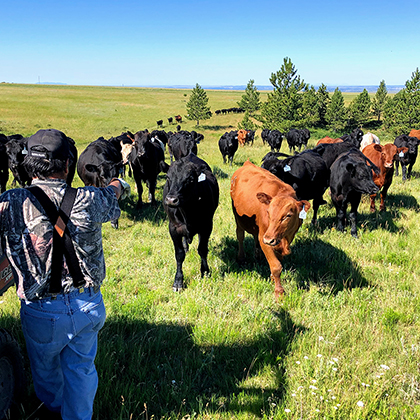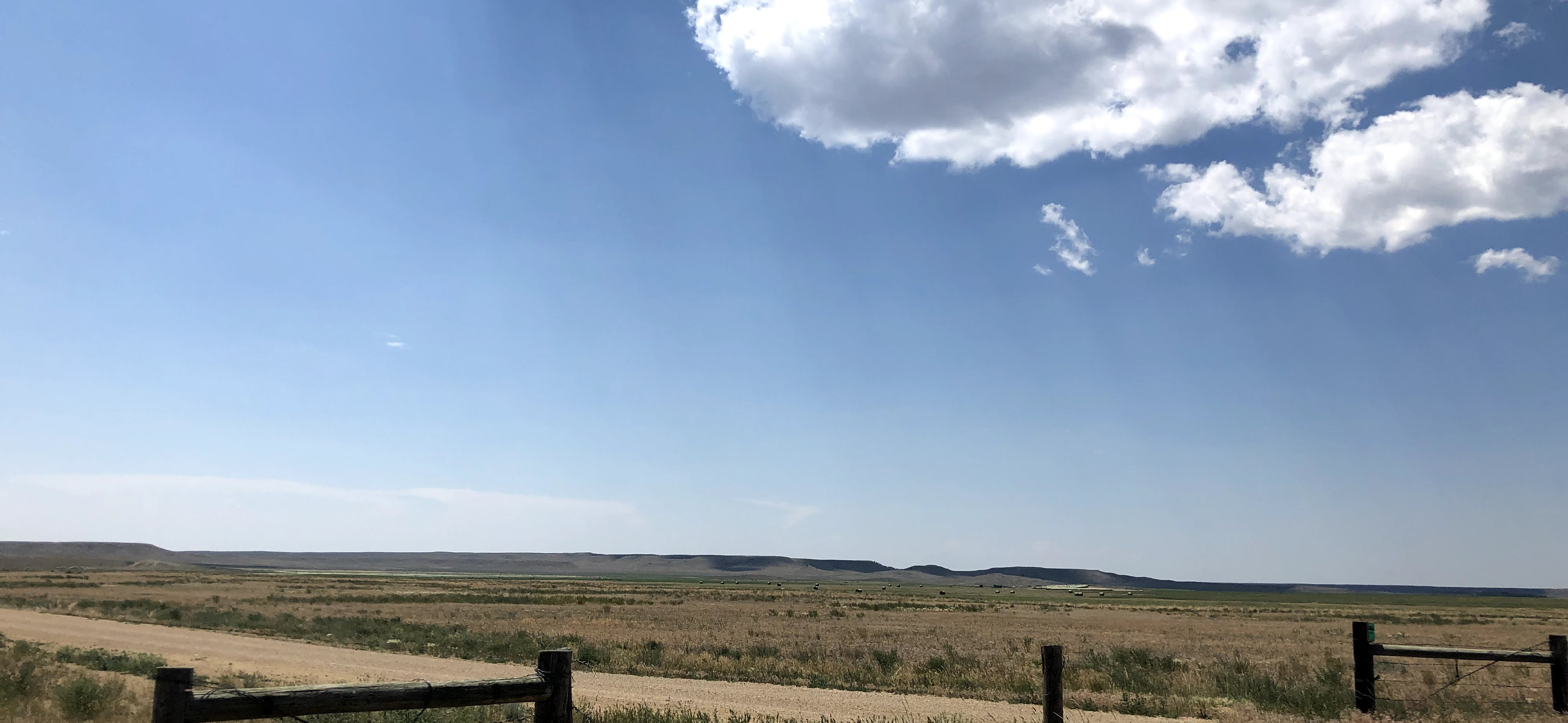About the Project
Agriculture-dependent rural communities across the United States are facing many challenges including population decline, consolidation of production, market concentration, change in land use, and absenteeism. Climate disruptions further compound these demographic and agricultural changes.
A growing number of US rural communities that have historically depended on agricultural production are coming to rely on natural resource conservation. Conservation efforts have focused their efforts on amenity-rich agricultural areas through top-down regulation and through bottom-up land management.
In this project, we study the intersection of top-down and bottom-up approaches with the goal of identifying impacts at the individual and community levels to draw lessons about how communities promote resilience. Using a transdisciplinary multi-methods approach, our efforts focus on a seven-county region in Montana's Northern Great Plains currently facing a constellation of demographic and agricultural challenges familiar to rural communities throughout the nation. Our project team is working with community members to generate new data on land ownership, use, and value. Through this community-engaged approach, we are working collaboratively with local residents and organizations to promote public scholarship that can inform local community resilience efforts.
This research is supported by the University of Wisconsin-Madison Departments of Community and Environmental Sociology and Sociology, the Wisconsin Alumni Research Foundation, the Wisconsin Agricultural Experiment Station, the Applied Population Laboratory, the Wisconsin Center for Integrated Agrifood Systems, and the Gaylord Nelson Institute's Center for Culture, History and the Environment. This project is made possible by the generous participation of community members throughout Montana's Northern Great Plains.

People

Publications
- Schmidt, Danielle. 2024. "Towards an Emplaced Vocabulary of Motive: Senses of Place and Land Sale Decision-Making in the Northern Great Plains." Rural Sociology 89 (4): 975–95. https://doi.org/10.1111/ruso.12574.
- Canfield, John. 2024. "Saving the Wild or Saving the Cowboy? Cultural Conflict between the Old and Nouveau West." Rural Sociology 89 (4): 954–74. https://doi.org/10.1111/ruso.12572.
